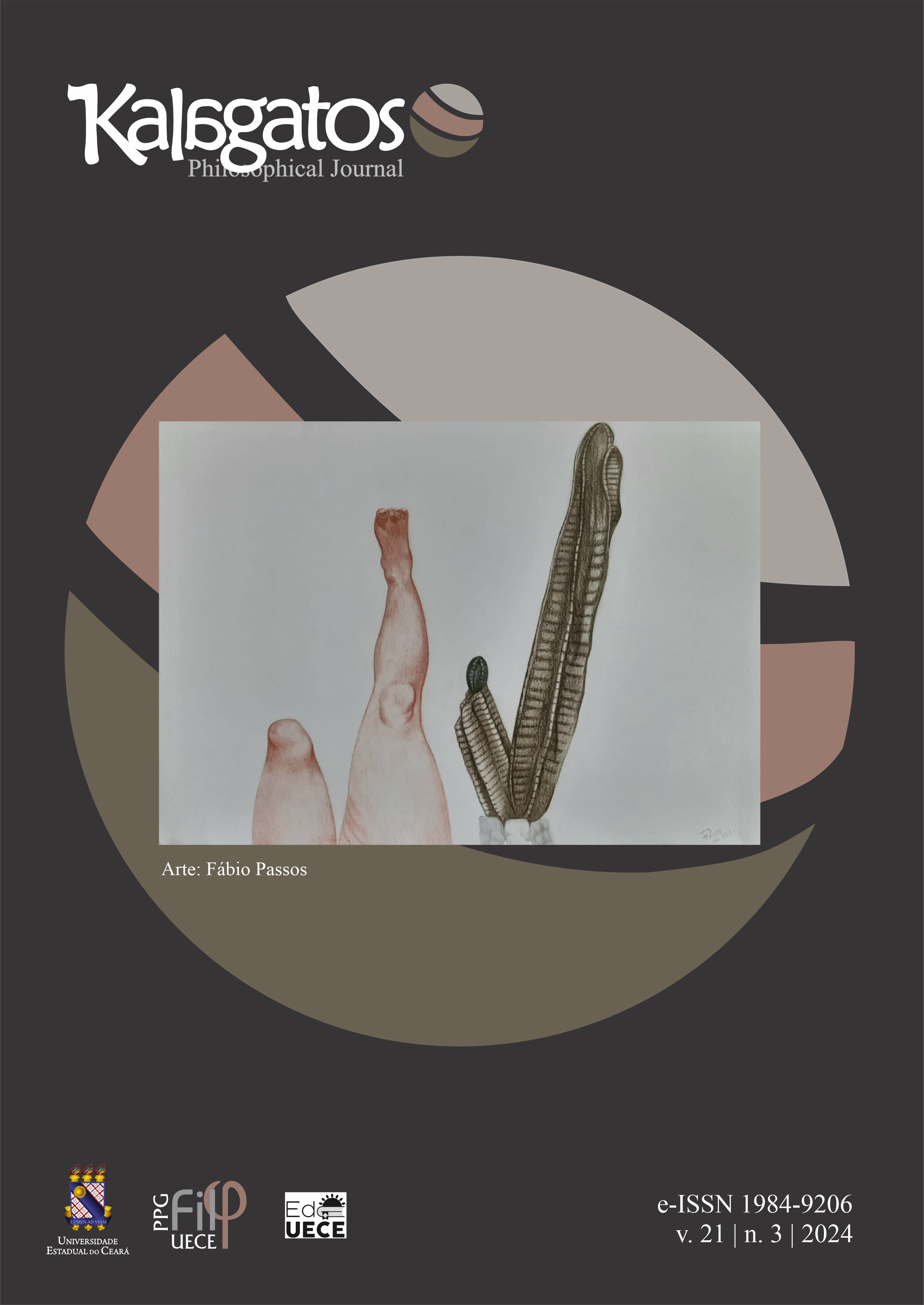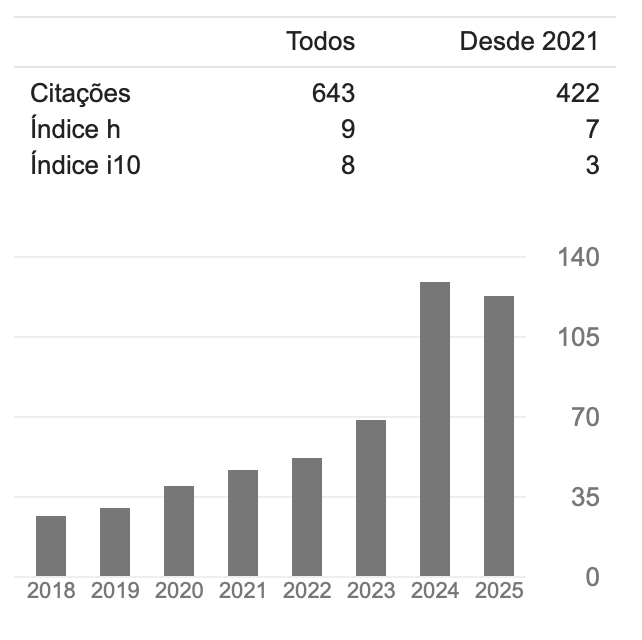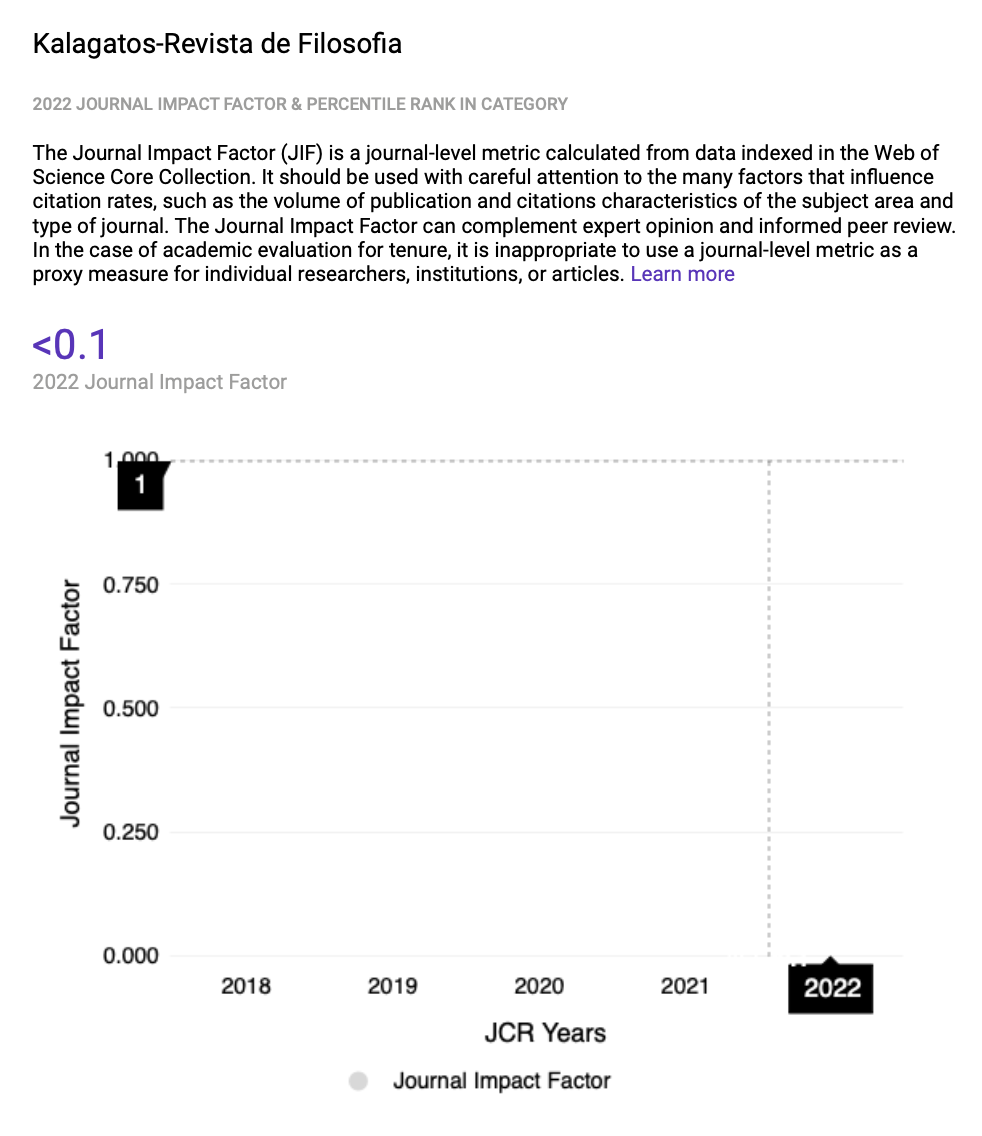A “Deficiência” como problema filosófico
DOI:
https://doi.org/10.52521/kg.v21i3.13897Schlagworte:
História da Filosofia, problema filosófico, deficiência, maquinarias de controle, capacitismoAbstract
O que comumente se denomina de “História da Filosofia” caracteriza-se como um conjunto de reflexões de cunho filosófico, levadas a cabo em períodos e territorialidades distintas. Em cada um desses períodos e territorialidades há uma profusão das construções de conceitos e categorias que têm como premissa fundamental tencionar um tema/problema específico, que funciona como ponto inicial de todo ato de filosofar, um espanto admirativo – thaumadizem (θαυμαδιζέμ) – diante de tudo o que é como é. A “deficiência”... a pessoa com deficiência e sua existencialidade pode ser compreendida enquanto um tema/problema filosófico no interior da “História da Filosofia”? A “deficiência” é capaz de despertar um espanto admirativo iniciador um ato de filosofar? São escassas as páginas de escritos filosóficos que tratam da “deficiência” e, quando tencionada, é com o intuito de explicitar que a “deficiência” se constitui em uma desarticulação dos padrões da natureza e da cultura. Minha proposta no presente artigo é pensar o lócus da deficiência enquanto tema/problema filosófico, tendo como fio condutor algumas reflexões de Platão, Aristóteles e Lucrécio. Posteriormente, tencionarei as maquinarias de controle enquanto constituidoras restritivas dos corpos das pessoas com deficiência, as quais determinam o que um o corpo de uma pessoa com deficiência pode ou não fazer, onde esse corpo pode ou não estar. Assim, essas maquinarias edificam uma compreensão preconcebida, capacitista, sobre o que é “deficiência”.
Downloads
Literaturhinweise
ARISTÓTELES. Política. Tradução e Notas Antônio Campelo Amaral e Carlos de Carvalho Gomes. São Paulo: Vega, 1998.
BESSA, Carla. Urubus. Rio de Janeiro: Confraria dos Ventos, 2020.
BUTLER, Judith. Corpos que importam. Os limites discursivos do “sexo”. Tradução Veronica Daminelli e Daniel Yago Françoli. São Paulo: N-1 edições, 2020.
DINIZ, Débora. O que é deficiência. São Paulo: Brasiliense, 2007.
FOUCAULT, Michel. Os anormais: curso no Collège de France (1974-1975). Tradução Eduardo Bandão. São Paulo: Editora WMF Martins Fontes, 2010.
FOUCAULT, Michel. Qu'est-ce que la critique? Critique et Aufklärung. Bulletin de la Société française de philosophie, Vol. 82, nº2, pp. 35 - 63, avr/juin 1990 (Conferência proferida em 27 de maio de 1978). Tradução Gabriela Lafetá Borges e revisão de Wanderson Flor do Nascimento.
GUERRA, Itxi. Luta contra o capacitismo: anarquismo eccapacitismo. Fortaleza: Editora Terra sem Amos, 2021.
LUCRÉCIO. Da Natureza das Coisas. Lisboa: Relógio D’Água, 2015.
MORAES, Eliane Robert. O corpo impossível. São Paulo: Iluminuras, 2017.
PLATÃO. Fédon. Tradução Jorge Paleikat e João Cruz Costa. São Paulo: Abril Cultural, 1972.
PLATÃO. O Banquete. 4ª Edição. Tradução Carlos Alberto Nunes. Belém: Ed. UFPA, 2018.
PLATÃO. República. 15ª Edição. Tradução Maria Helena da Rocha Pereira. Lisboa: Calouste, 2017.
TAYLOR, Astra. Examined life; philosophy in the streets. Documentário, 87 min. Canadá, 2008. Judith Butler & Sunaura Taylor. Disponível em: www.youtube.com/watch?v=k0HZaPkF6qE
TEIXEIRA, Carolina. Deficiência em cena. João Pessoa: Idea Editora, 2011.
Downloads
Veröffentlicht
Zitationsvorschlag
Ausgabe
Rubrik
Lizenz
Copyright (c) 2024 Fábio Abreu dos Passos, Elivanda de Oliveira Silva

Dieses Werk steht unter der Lizenz Creative Commons Namensnennung 4.0 International.



















